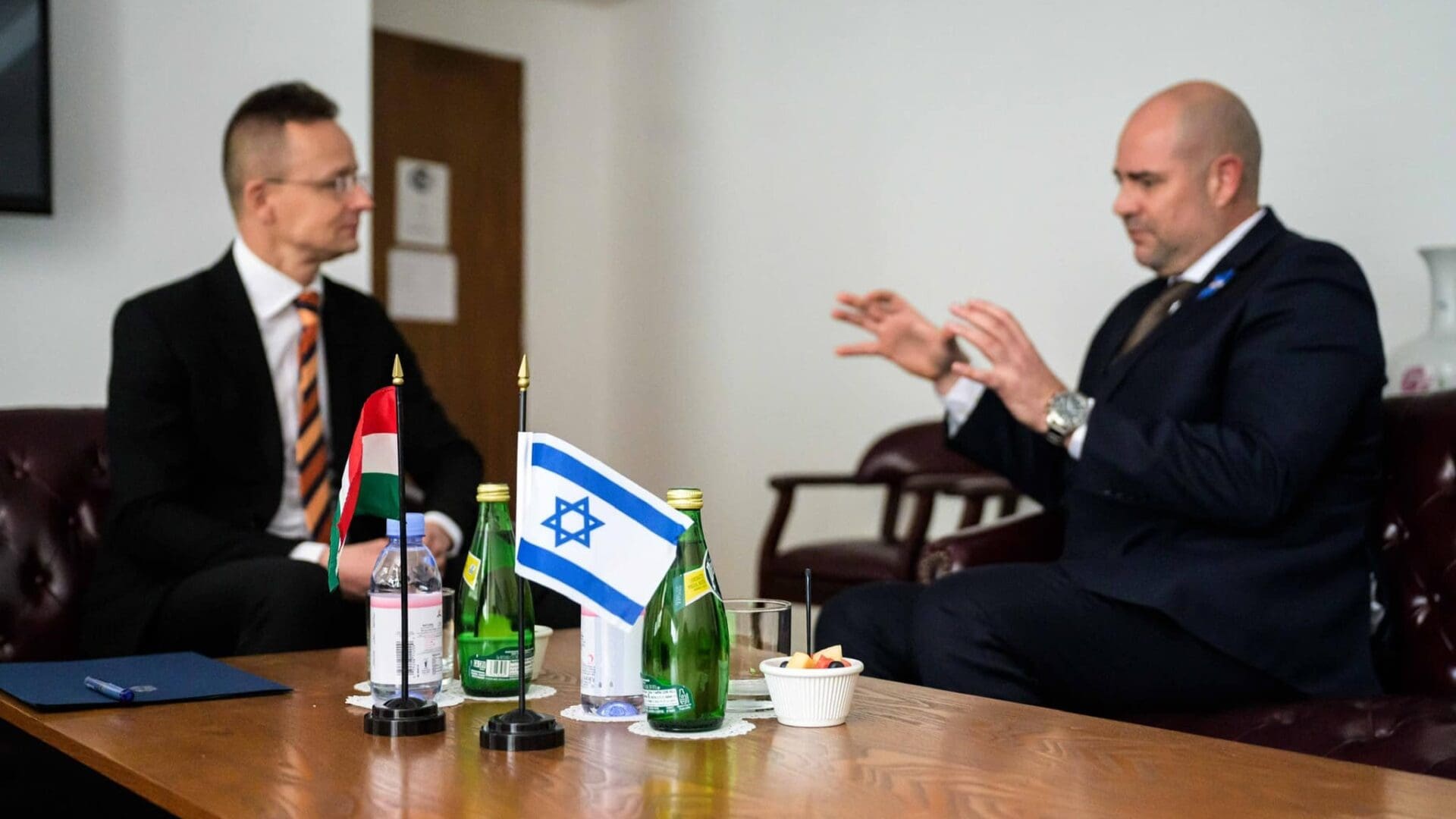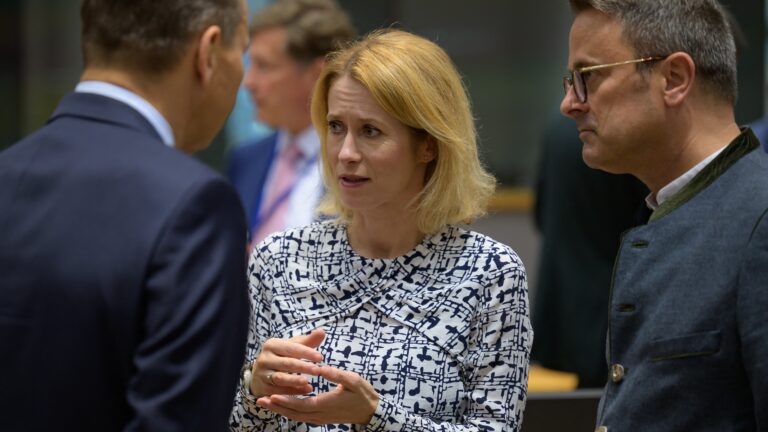During what he described as the EU’s most emotional debate in the last ten years, the Hungarian Minister of Foreign Affairs argued against sanctions targeting Israeli citizens, stating that the time was not appropriate for such measures. Peter Szijjártó declared that the primary duty of the European Union and the United Nations at this time is to prevent the conflicts in the Middle East and Ukraine from getting worse and that Hungary is a reliable ally in that effort.
At the EU’s Foreign Affairs Council meeting on the Middle East at the beginning of February, Péter Szijjártó, the Hungarian Minister of Foreign Affairs, and his Czech counterpart, Jan Lipavský denounced an EU plan to sanction certain Israeli settlers. The European Union sought to punish 12 settlers by preventing them from entering Europe.
The EU’s measures against ‘violent’ settlers were proposed shortly after US President Joe Biden issued an executive order imposing penalties on four settlers who now have no access to any US assets, property, or the US financial system. Probably not accidentally, Biden announced the sanctions during his visit to Michigan, a state with a substantial Arab American minority that has criticized him for his support of Israel.
The proposed EU sanctions have divided the member states. Germany, traditionally one of Israel’s closest supporters in the EU, is now on board, along with France, Spain, Belgium, and Ireland, with sanctioning ‘violent’ Israeli settlers in the West Bank, by imposing travel restrictions on 12 settlers to prevent them from entering Europe. However, Germany, alongside Bulgaria, Croatia, Italy, and Romania, also expressed concerns about the timing of the measures.
Hungary and the Czech Republic oppose the move, claiming that
it would indicate the EU is equating Jewish settlers with Hamas.
The two Central European governments have been the only members of the EU that have consistently declared their support for the Israeli government, both before and since the 7 October massacres. In December, they were among the ten nations that voted against a resolution at the UN General Assembly calling for a ceasefire in Gaza. ‘It is clear who is the victim and who is the aggressor’ in the Israel–Hamas war, Czech Prime Minister Petr Fiala stated recently.
Now is Not the Time to Impose Sanctions on Israel
‘Now is definitely not the time for this,’ Minister of Foreign Affairs and Trade Peter Szijjártó said, adding that Western European states were pushing for ‘including certain Israeli citizens, so-called settlers in the sanctions list.’ Szijjártó said never in the past ten years has he ‘ experienced such an overly emotional debate that devolved into personal attacks’ as the EU Foreign Affairs Council’s discussion on the Middle East the previous week.
He stated that Israel was carrying out counterterrorism operations that included rescuing hostages and protecting people after they had become victims of brutal terrorist attacks. He added that at the same time, every effort must be made to prevent the conflicts from escalating. Imposing sanctions would not serve that goal, he argued, ‘because that can only generate more tensions, prolong the counter-terrorism operations, and could result in more casualties’. Instead, Europe should focus on ensuring the Middle East’s return to normalcy and the success of counterterrorism operations happen as soon as possible. He said that the Abraham Accords had already started this process, ‘but was interrupted by Hamas’s terrorist attack.’
Szijjártó also raised concerns about the increasing level of anti-Semitism and anti-Israel attitudes in Europe and the United States, mentioning the rise in anti-Semitic crimes and anti-Israel demonstrations as examples.
In the UN General Assembly Meeting in New York, Szijjártó declared that Hungary is ready to assist in all peace efforts and that the United Nations’ main obligation at the moment is to stop the conflicts in the Middle East and Ukraine from getting worse. ‘We want the war in our neighbouring country to end as soon as possible, and for the counterterrorism operation in the Middle East to succeed,’ Szijjártó nailed down.
The minister also warned of the possibility of crisis escalation in both the Middle East and Ukraine, which might result in regional or even worldwide conflict. Preventing the escalation of these crises is currently the number one responsibility of the international community, the minister insisted. ‘The sooner the war is brought to an end, and
the sooner there is victory in the counterterrorism operation, the greater the chance for the next era in world politics being about connectivity and civilized cooperation,’
he said.
The Minister of Foreign Affairs hoped that the voice of the ‘global pro-peace majority’ would be growing louder in the UN in opposition to the transatlantic ‘war psychosis’. The minister declared: ‘You can count on Hungary as a true ally when it comes to standing up for peace, when it comes to saving the lives of people, and when it comes to fighting terrorist organizations.’
Rift in the EU Over Gaza War
Since the outbreak of the Israel–Hamas war, the differences between pro-Palestinian member countries and more pro-Israeli nations like Hungary and the Czech Republic have gradually come to the forefront.
Shortly after the start of the Gaza War, on 10 October, the European Union’s foreign ministers adopted a resolution allowing Israel to defend itself and declaring that the collective punishment of civilians living in the Gaza Strip was illegal under international law. Nine days later, on 19 October, the European Parliament passed a resolution denouncing Hamas, recognizing Israel’s right to self-defence, and calling for the immediate release of all hostages held by Hamas.
However, there was a shift in the EU position in December, when the leaders of Malta, Belgium, Spain, and Ireland proposed a vote urging an immediate ceasefire.
Before the most recent attempt of sanctioning Israel, last December, the European Union’s High Representative for Foreign Affairs and Security Policy Josep Borrell proposed sanctions on ‘extremist’ Israeli settlers.
Spain, Ireland Call for Scrapping of Trade Deal with Israel
The latest development in the saga is the open letter the prime ministers of Ireland and Spain sent to European Commission President Ursula von der Leyen and High Representative Borrell on 14 February, and demanded, citing the deteriorating situation in Gaza, an immediate assessment of whether Israel is complying with the human rights obligations stipulated in its association agreement with the Union.
It is somewhat ironic that the leftist Spanish government is being vocal about alleged human rights abuses perpetrated by Israel, considering the quasi-coup d’état the Spanish Socialists engaged in last year to grab power. Meanwhile, in Ireland, controversial hate speech legislation is planned, aiming to silence anti-immigration voices.








